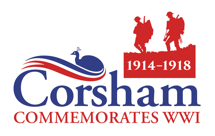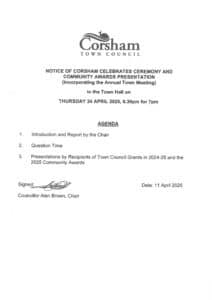William Henry James Robbins
Most soldiers that were looked after at the Corsham Hospital were recovering from wounds or operations and were either returned to service or prepared for discharge. There were however a number of losses at Corsham Hospital. One of those was Private William Robbins who died on the 22nd June 1917. This is how his death was reported in the Wiltshire Times. Private Robbins is buried in Ladbrook Lane Cemetery in Corsham.
From the Wiltshire Gazette. 28th June 1917
Apart from the pathetic side of the question it was a coincidence that a trumpeter under Lord Methuen in the South Africa War should come to Corsham to die. Private W.H.J.Robbins, while on duty in Gloucester, contracted a severe chill which developed into acute bronchitis, and the disease had made serious havoc with him when he was removed from Bristol Hospital to the Corsham V.A.D. Hospital. All the care which the greatest experience could bring him did not avail, and he succumbed on Friday in the presence of his wife. Private Robbins was at one time in the Duke of Beaufort’s Regiment and served in Egypt. He has seen 30 years service, and it was while on guard in the Royal Defence Corps at Gloucester he contracted the fatal cold. He comes from a Military family, his father being an old Crimean soldier.
The funeral took place with military honours, on Tuesday afternoon. The procession formed up at the lower end of Priory Street, close to the mortuary, and was headed by the firing party (members from the Royal Defence Corps by permission of Lieut. Bevir). Following them were the wounded soldiers from the hospital (those in a fit condition to walk the distance) who drew the conveyance with the remains with ropes. Then came the funeral carriages (lent by Lady Goldney, Commandant) containing the mourners – Mrs Robbins (widow), Miss Robbins (daughter), Mrs Glover (sister), Mrs Latham (sister), Miss Glover (niece). Next in order was Lieut. Bevir, followed by members of the Corsham Ambulance Detachment, under Commandant P.J.Gane, and with measured tread they went through the High Street. Arrived at the burying ground, they were met at the gates by the Vicar (Rev. A.J. Winnington-Ingram) who officiated. Thanks to previous arrangements made by Commandant Gane, and the regulation of the public by Sergt. Nicholas, everything went through in excellent order. Lady Goldney (Commandant) and the Assistant-Commandant (Mrs FitzAdam-Ormiston) were at the graveside with many of the sisters and nurses from the hospital. Immediately after the ceremony three rounds were fired by the Defence Corps, and Trumpeter Fowler, (No.1 ward, Melksham Hospital) sounded the “Last Post”. The following were the wreaths sent:- In loving memory of dear Uncle Will, from Lois; With deep sympathy from the nurses and sisters; With deep sympathy from the Misses McLaughlin; In remembrance from Lady Goldney; In remembrance from the Matron; With deep sympathy from the Assistant-Commandant, Mrs FitzAdam-Ormiston; Deep sympathy from a neighbour, Mrs Parnell; With deepest sympathy from the patients at the V.A.D. Hospital; With deepest sympathy from Miss Hart; With deepest sympathy from Miss Halhed; In remembrance from Miss Sainsbury – “Though our warrior’s sun has set, Its light shall linger round us yet; Bright, radiant, blest”; With great sympathy from the Biddestone Commandant, Mrs Hedworth Williamson. Borne upon the coffin were the Union Jack, the trumpet, side arms, and cap of the deceased.
William was survived by his wife Adelaide who lived in Leyton in London.




